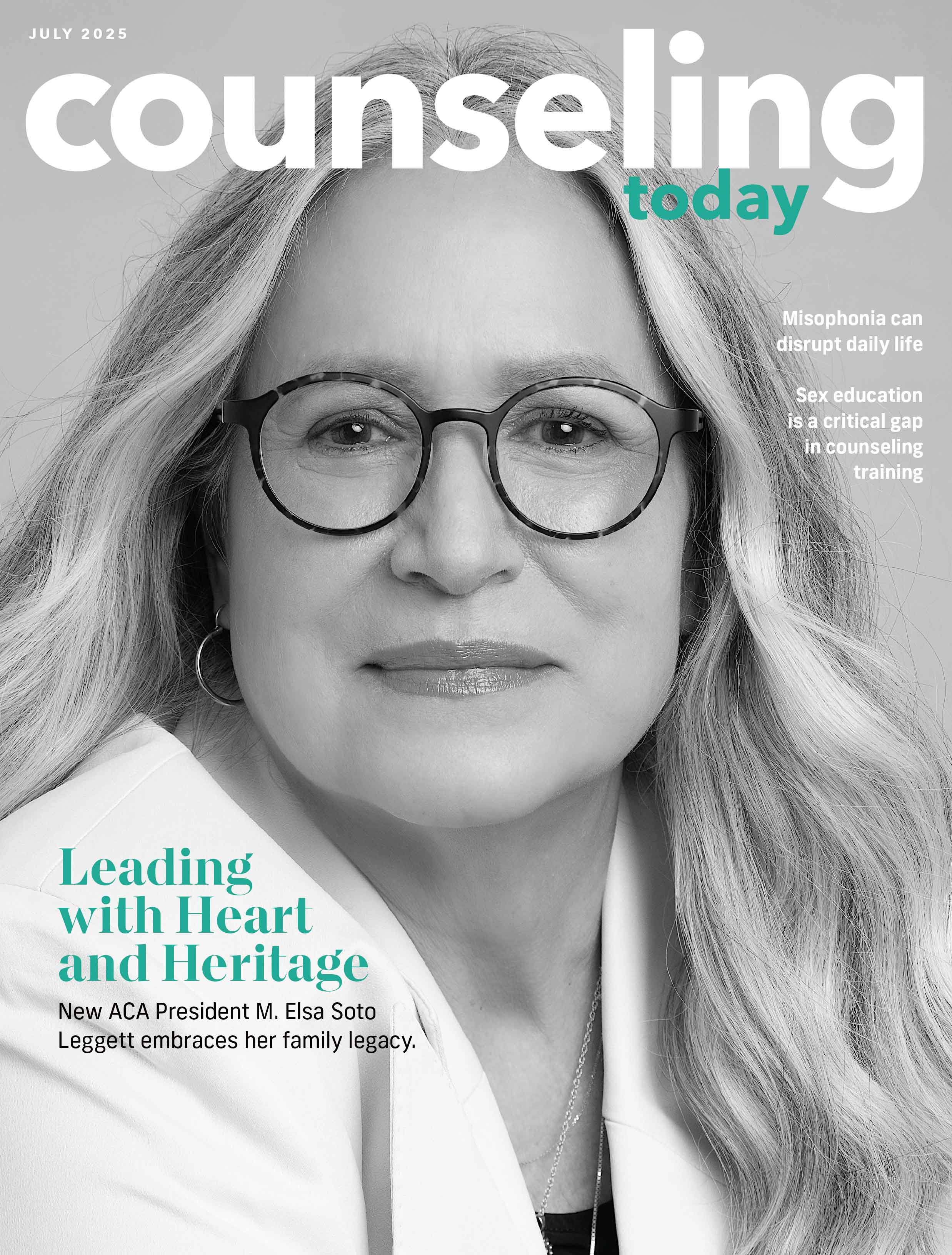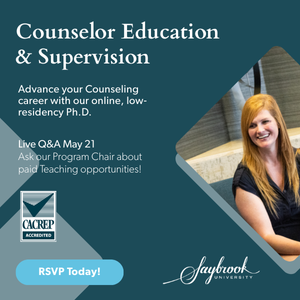Explore Counseling Today Articles
A Year of Growth
As my term as ACA president comes to an end, I want to take some time to reflect on the progress we’ve made on the four presidential goals I set out to achieve.
Decolonizing the Profession
I started my presidency with the goal of developing a research agenda to facilitate the process of decolonization and anti-racism. To achieve this, I have established educational courses on decolonization for counselors. The first educational content was available at this year’s ACA Conference & Expo in New Orleans. We offered a two-part series (each 90 minutes) covering the theoretical bases, decolonization of education, Indigenous ways of knowing and applications. Attendees who completed both sessions received a certificate in decolonization counseling. ACA will continue to develop and provide other courses on decolonization and may offer a possible publication series for practitioners and researchers in the field.
Creating a Rapid Response Protocol
The goal of creating a rapid response protocol for addressing issues affecting counseling, mental health and individual wellness has been a little more elusive. While I am still working on this initiative, it has become difficult to make a lot of progress because of the polarization and politicization of most issues that require attention. We continued this discussion during the Governing Council meeting at the conference to determine the best way to respond to national and global events in a manner that reflects our expertise as mental health professionals.
Improving Governance
I also took the lead in making the changes needed to improve governance. I shared some of Governing Council’s aspirations for the profession and ACA in the March issue of Counseling Today, but I want to reiterate that this year we have been able to dream big and move toward:
- Building a stronger sense of community
- Increasing our visibility as a profession
- Making ACA the go-to organization for counselors and counseling resources
- Being more innovative, progressive and inclusive
- Becoming expert leaders in research, especially with the recent addition of educational content on decolonization (which will be called the Decolonization Academy) and conference sessions in Spanish
- Creating an environment that serves as a home for counselors
Creating a New Strategic Plan
Governing Council’s aspirational goals for the profession’s future also served as the backbone for ACA’s new strategic priorities. As I mentioned in the March issue, the Governing Council approved four strategic goals:
- Advocacy & Engagement: We will guide counselors in advocating for the mental health and well-being of their communities, clients and the profession.
- Community & Partnerships: We will nurture community and mutually beneficial partnerships to advance the profession and expand its footprint.
- Education & Public Awareness: We will provide broad-reaching education for counselors across their career trajectory, and we will also amplify counseling as a viable path to wellness and delineate counseling identity and its position in the mental health field.
- Research & Practical Application: We will curate and disseminate rigorous, innovative research and scholarly activity to continually advance data-informed practice.
A Final Thanks
I cannot end my final article as ACA president without thanking those who invited me to their conferences to provide keynotes or to get to know their state branches and divisions. My first invitation came from the Kansas Counseling Association, where I talked about the decolonization of mental health, and then the Alabama Counseling Association asked me to speak about leadership. I also had the privilege of visiting with the Louisiana Counseling Association, the Irish Association for Counselling and Psychotherapy, the British Association for Counselling and Psychotherapy and the Puerto Rico Counseling Association. I also initiated talks with other professional organizations across the U. S. and Latin America to close the gap between professions and see how we can collaborate in providing mental health services to those who need it the most.
These experiences allowed me to witness up close the many talented people we have across the globe and our profession’s potential for continued growth. Thank you for the opportunity to serve.
Edil Torres Rivera, PhD, LPC, LCPC, is the ACA president, an ACA Fellow, and a professor and Latinx Cluster coordinator at Wichita State University. Contact him at etorresrivera@counseling.org.
- Business Administration
- Professional Counseling
- Counselors
Search CT Articles
Filter CT Articles
Current Issue
Sign Up for Updates
Keep up to date on the latest in counseling practice. Sign up to receive email updates from Counseling Today.



